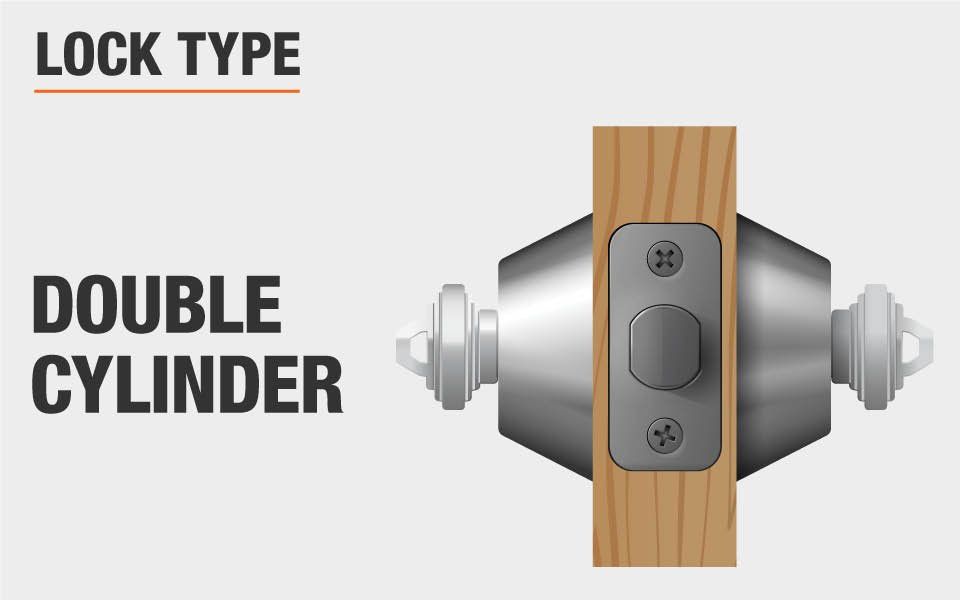Blog Layout
Do you need a “double keyed” or double-cylinder deadbolt?
February 8, 2021
Do you need a “double keyed” or double-cylinder deadbolt?

Homeowners often ask us to replace their deadbolt lock with one that requires a key on the inside as well as the outside. This can have advantages, but also important disadvantages. Here’s a rundown of which situations really benefit from a double-cylinder deadbolt.
First, let’s understand the terminology. A deadbolt is a lock that, once fully engaged, cannot be “shimmed” or “jimmied” open. The bolt will retract only by operating the thumb-turn or key. A single-cylinder deadbolt is the most common type. It requires a key to operate the lock from the outside, but has a thumb-turn on the inside. A double-cylinder lock requires a key to operate the door from either side.
Now, under what circumstances is a double-cylinder lock helpful?
In short, it is helpful only if an easily broken pane of glass would allow access to the thumb-turn of the lock, but not passage into the house. Also, you must have an emergency escape plan! A person who is panicked or overcome by smoke cannot operate a key. People die behind locked doors. Your life is more important than your “valuables.”
Situation 1: No glass in or near the door. There is simply no reason to use a double-cylinder lock.
Situation 2: Full-glass or half-glass door. There is still no reason to use a double-cylinder lock.
If an intruder breaks the glass, they don’t need to unlock or open the door. The opening from the broken glass is big enough for them to enter anyway. Take heart though: modern, tempered, double-glazed windows are pretty difficult to break, and it will make quite a noise! Therefore, a double-cylinder lock provides no additional security, but does cause inconvenience and a safety hazard for you and your family.
Situation 3: A small glass pane or sidelight. A double-cylinder lock might improve security.
In this case, a burglar might break the small pane of glass, especially if it is old, single-pane glass. A double-cylinder lock might deter him, since he still needs to open the door to get inside. However, fire safety must be part of your planning. Firefighters and life safety experts all know that when a fire or other emergency creates panic, people simply cannot find or operate keys. If you have alternate routes of escape, then a double-cylinder may be appropriate for this door. If you don’t have a different plan, stick with a single-cylinder lock, and consider a more secure door design. A new door would provide better security and energy savings, too! This advice comes to you from someone who does not sell doors!
AREA OF SERVICE
Apex, Cary, Durham, Fuquay-Varina, Garner, Holly Springs, Knightdale, Morrisville, Raleigh, Rolesville, RTP, Wake Forest, Wendell, Zebulon and surrounding communities
PHONE
919-828-9605
© 2025
All Rights Reserved | Busse's Lock Service
Website By RedoSites
